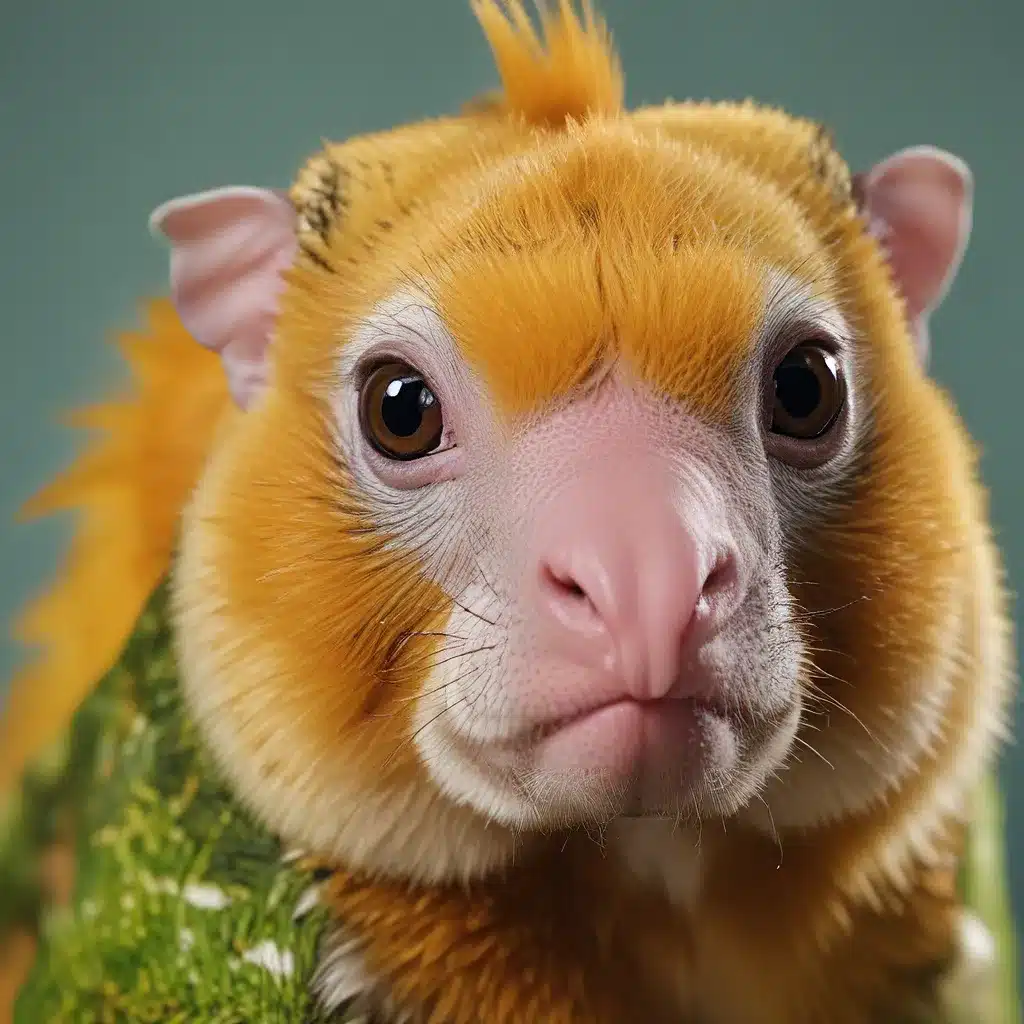
The Dark Side of the Exotic Pet Trade
Ah, the allure of exotic pets – those fascinating creatures that seem to transport us to distant, untamed lands. But beneath the captivating veneer, a troubling reality lurks. The exotic pet trade, it turns out, is a shadowy realm rife with animal suffering and unethical practices.
Let me paint you a vivid picture. Imagine a shipment of frogs, once vibrant and full of life, now crushed and lifeless in their crates, deprived of the most basic needs. Or picture the countless reptiles and amphibians, riddled with parasites and disease, their agonizing journeys from the wild to the pet store shelves. It’s a sobering thought, isn’t it?
As National Geographic reports, the U.S. alone imported a staggering 324 billion live animals from 2000 to 2014, many destined for the exotic pet trade. And the mortality rates are staggering – one witness cited a study suggesting that a mere 30% of all reptiles in the pet trade even make it to their final destination.
It’s a harrowing reality that challenges our very notions of ethical consumerism. How can we, as pet-loving individuals, reconcile our desire for these captivating creatures with the undeniable cruelty that fuels their trade? The answer, my friends, lies in a revolution – an ethical breeding revolution that has the power to transform the industry from the ground up.
The Rise of Ethical Breeders
In the face of such widespread animal suffering, a new breed of exotic pet enthusiasts has emerged – those who are committed to ethical breeding practices. These trailblazers are not content with the status quo; they are determined to shatter the mold and create a more compassionate future for our scaled, feathered, and finned companions.
One such visionary is Golden Exotic Pets, a leading provider of humanely bred exotic animals. Their mission is simple yet profound: to ensure that every pet they offer has been lovingly cared for, free from the trauma and abuse that so often plagues the traditional exotic pet trade.
“It’s not just about the bottom line for us,” explains the founder, Emilia, with a steely determination in her voice. “It’s about creating a kinder, more sustainable future for these incredible creatures. We believe that ethical breeding is the key to unlocking that vision.”
And Emilia and her team aren’t just talking the talk; they’re walking the walk. From meticulously monitoring breeding conditions to providing comprehensive care guides for their customers, Golden Exotic Pets has set a new standard for responsible exotic pet ownership.
Captive Breeding: A Glimmer of Hope
As the dark realities of the exotic pet trade continue to come to light, a growing number of experts are advocating for a shift towards captive breeding as a solution. Researchers from the University of Veterinary Medicine in Vienna, Austria, have found that captive breeding can significantly reduce the negative impacts on wild populations, while also ensuring a higher standard of animal welfare.
“The key is to create a closed-loop system, where the demand for exotic pets is met entirely through ethical breeding, rather than relying on wild-caught animals,” explains Dr. Olivia Benson, a renowned conservation biologist. “This not only protects vulnerable species in their natural habitats, but it also allows us to provide these animals with the care and enrichment they deserve.”
And the benefits of this approach extend far beyond the individual pets. By eliminating the need for wild-caught animals, captive breeding programs can also help mitigate the spread of zoonotic diseases – those that can jump from animals to humans. It’s a win-win-win scenario that’s gaining traction in the industry.
Tackling Regulatory Challenges
Of course, the road to a fully ethical exotic pet trade is not without its obstacles. Outdated regulations, lax enforcement, and the powerful influence of industry lobbying groups have long stood in the way of meaningful reform.
As the National Institutes of Health reports, the U.S. Department of Justice hasn’t successfully prosecuted a case of inhumane treatment in the exotic pet trade since the 1990s. And even when violations are uncovered, the penalties are often little more than a slap on the wrist.
“It’s a frustrating reality, but one that we’re determined to change,” says Emilia, her eyes burning with determination. “We’re working closely with policymakers, conservation groups, and fellow ethical breeders to push for stricter regulations and enforcement. Because at the end of the day, these animals deserve so much better.”
And the public is increasingly on their side. As awareness of the industry’s dark underbelly grows, consumers are demanding more ethical options. They want to know the provenance of their pets, and they’re willing to pay a premium for the peace of mind that comes with ethical breeding.
The Future is Bright
So, what does the future hold for the exotic pet trade? If the rise of ethical breeders like Golden Exotic Pets is any indication, it’s a future filled with hope, compassion, and a renewed respect for the incredible diversity of life on our planet.
Imagine a world where every exotic pet has been lovingly cared for, where the demand for these remarkable creatures is met through sustainable, humane practices. It’s a vision that may have seemed like a pipe dream just a few years ago, but now, it’s within our grasp.
As we continue to navigate the complexities of the exotic pet industry, let’s remember the power of individual action. By choosing to support ethical breeders, by educating ourselves and our communities, we can each play a role in ushering in a new era of animal welfare and conservation.
After all, these incredible creatures deserve nothing less than our utmost care and respect. So let’s raise a glass to the ethical breeding revolution – the transformation that’s poised to change the face of the exotic pet industry, one ethical pet at a time.

